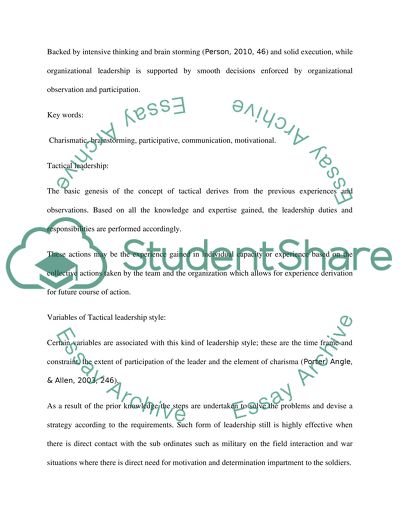Cite this document
(“Tactical Leadership Versus Organizational leadership Essay”, n.d.)
Retrieved de https://studentshare.org/military/1623787-tactical-leadership-versus-organizational-leadership
Retrieved de https://studentshare.org/military/1623787-tactical-leadership-versus-organizational-leadership
(Tactical Leadership Versus Organizational Leadership Essay)
https://studentshare.org/military/1623787-tactical-leadership-versus-organizational-leadership.
https://studentshare.org/military/1623787-tactical-leadership-versus-organizational-leadership.
“Tactical Leadership Versus Organizational Leadership Essay”, n.d. https://studentshare.org/military/1623787-tactical-leadership-versus-organizational-leadership.


